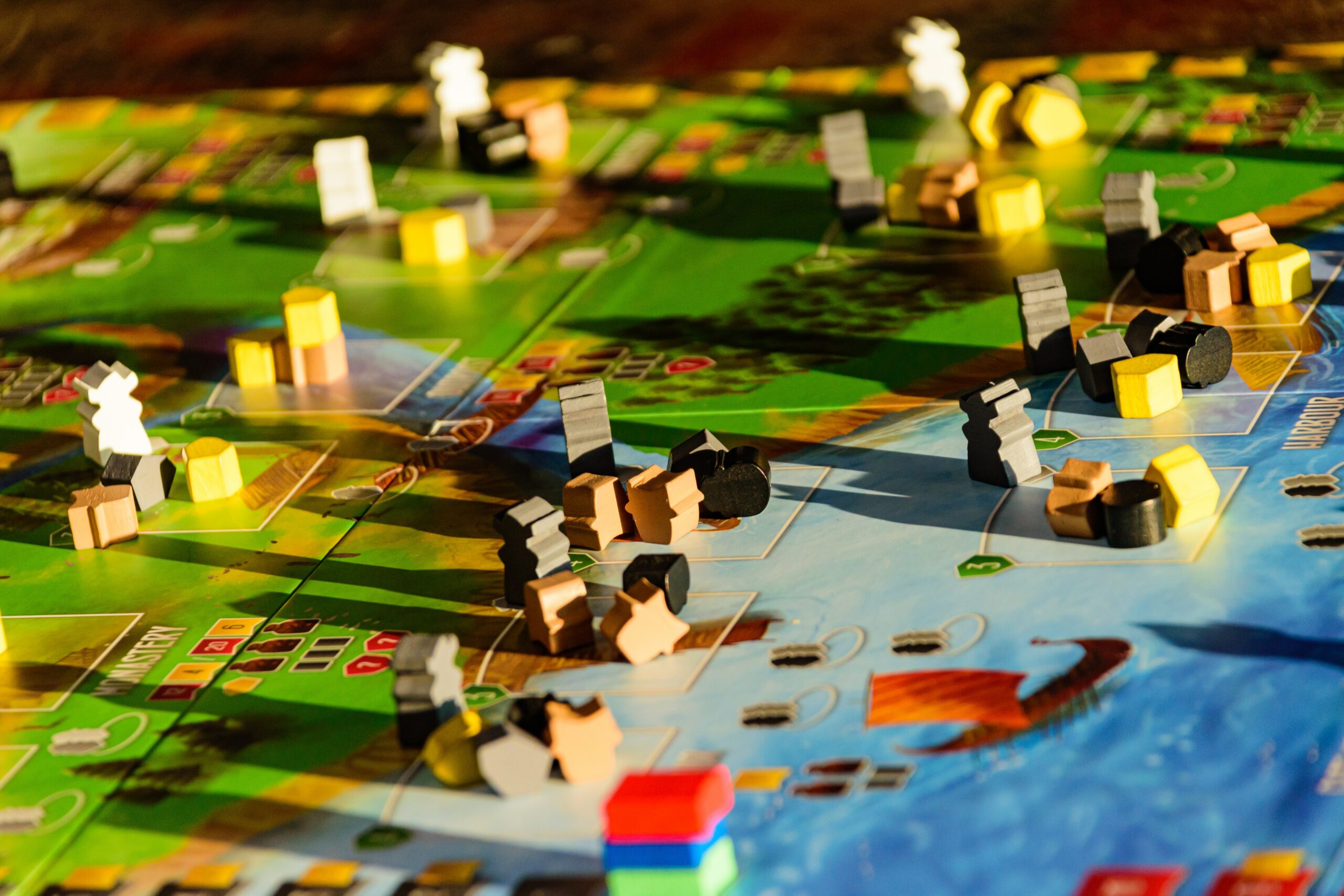Welcome to the captivating realm of economic board games, where players embark on exciting journeys to manage resources and build empires. These board games provide a unique and enjoyable experience for players of all ages, offering valuable lessons in strategic thinking, decision-making, and resource management.
As you delve into this article, you’ll discover a diverse selection of economic board games, each with its own set of challenges and rewards. Whether you’re a seasoned player looking for new additions to your collection or a curious novice ready to dive into the world of board games, we’ve got you covered with valuable insights and recommendations.
Why are economic board games a great way to enhance strategic thinking?
Economic board games go beyond mere entertainment, offering players the perfect platform to hone their strategic thinking skills. These games require careful planning, clever resource allocation, and the ability to adapt to changing circumstances. By navigating complex economic systems within the game, players learn to think critically and make informed decisions, all while having a blast with friends and family.
What are the top benefits of playing economic board games?
Playing economical board games comes with an array of benefits that extend beyond the tabletop. These games promote social interaction, teamwork, and healthy competition. Additionally, they foster creativity and problem-solving skills as players devise innovative strategies to outmaneuver opponents and achieve victory. With themes ranging from ancient civilizations to futuristic space colonies, economic board games offer a rich and diverse gaming experience that captivates both seasoned gamers and newcomers alike.
Which economic board games are perfect for beginners?
For those new to the world of economic board games, several titles offer a friendly introduction. Games like “Catan” (formerly known as “The Settlers of Catan”) and “Splendor” feature accessible rules and mechanics, making them ideal choices for beginners. As players become familiar with the gameplay dynamics, they can graduate to more complex titles, such as “Terraforming Mars” and “Power Grid,” to further challenge their strategic acumen.
How do economic board games simulate real-world economic scenarios?

One of the remarkable aspects of economic board games is their ability to replicate real-world economic situations. These games often incorporate supply and demand mechanisms, market fluctuations, and trading dynamics, providing players with an authentic experience that mirrors economic realities. As you navigate these virtual economies, you’ll gain a deeper understanding of economic principles that can be applicable in real-life decision-making.
What are the essential skills you can develop by playing economic board games?
Playing economic board games is an enriching experience that cultivates various valuable skills. From negotiation and resource management to risk assessment and long-term planning, players develop a diverse skill set that can be applied to both gaming and everyday scenarios. These games encourage players to analyze their opponents’ moves and anticipate future actions, nurturing foresight and strategic foresight.
How can economic board games teach valuable lessons about resource management?
Resource management lies at the core of economic board games, and mastering this aspect is key to success. Players learn to allocate limited resources efficiently, strike a balance between immediate needs and long-term goals, and optimize their strategies for maximum productivity. By managing resources effectively in the game, players gain insights into real-life budgeting and resource allocation, making these games not just fun but also educational.
Which economic board games offer the most immersive empire-building experiences?
Immerse yourself in grand empire-building journeys with captivating economic board games like “Through the Ages” and “Race for the Galaxy.” These games allow you to construct and expand your civilizations, manage intricate economies, and lead your people to prosperity. As you navigate the complexities of empire-building, you’ll encounter challenging decisions and exhilarating triumphs, creating an immersive and unforgettable gaming experience.
What are the key elements to consider when choosing an economic board game?
When selecting an economic board game, several elements should be taken into account. Consider the complexity of the rules, the number of players required, and the estimated playtime. Additionally, examine the theme and setting to ensure it aligns with your interests. By considering these factors, you can find a game that suits your preferences and provides an engaging experience for you and your fellow players.
How do economic board games foster healthy competition among players?

Economic board games thrive on healthy competition, fueling excitement and engagement among players. As you strategize and make calculated moves to outmaneuver your opponents, a friendly rivalry emerges, encouraging everyone to bring their A-game.
These games promote sportsmanship and fair play, creating an environment where everyone can showcase their skills and enjoy the thrill of competition. Whether you’re negotiating trades, vying for limited resources, or strategically blocking your opponents’ progress, the competitive element adds an extra layer of excitement to the gameplay, keeping players engaged from start to finish.
What strategies can you employ to maximize your resources in economic board games?
Maximizing resources is crucial to success in economic board games, and adopting the right strategies can give you a significant advantage. Prioritize long-term planning, carefully considering the potential benefits and risks of each decision. Look for opportunities to optimize your resource allocation by identifying synergies between different elements of the game.
Additionally, keep a keen eye on your opponent’s moves, adjusting your strategy accordingly to stay one step ahead. Finally, be adaptable and flexible, willing to revise your plans based on changing circumstances or unexpected events. By employing these strategies, you can make the most of your resources and increase your chances of victory.
How can economic board games help improve decision-making skills?
Economic board games provide an excellent platform for honing decision-making skills. Every move in these games requires thoughtful consideration and analysis, as each decision can have ripple effects on your overall strategy. By engaging in critical thinking and evaluating different options, players learn to make sound judgments under pressure.
They develop the ability to assess risks, weigh potential outcomes, and anticipate the consequences of their choices. Over time, playing economic board games enhances decision-making abilities, enabling players to make informed and calculated decisions not only in the game but also in real-life situations.
What are the best cooperative economic board games for team building?
| Board Game | Player Count | Complexity |
|---|---|---|
| Catan | 3-4 | Medium |
| Splendor | 2-4 | Easy |
| Terraforming Mars | 1-5 | Medium-Hard |
| Power Grid | 2-6 | Hard |
| Through the Ages | 2-4 | Hard |
Cooperative economic board games offer a unique twist, fostering teamwork and collaboration among players. These games encourage participants to work together towards a common goal, pooling their resources and sharing strategies to overcome challenges. Titles such as “Pandemic” and “Forbidden Desert” present players with collaborative scenarios where each team member plays a vital role in achieving success.
Through these experiences, players learn effective communication, problem-solving, and the importance of teamwork. Cooperative economic board games provide an excellent opportunity for team building, making them an ideal choice for family gatherings, corporate events, or any occasion where fostering camaraderie and collaboration is desired.
How can economic board games be educational for children and teenagers?
Economic board games offer a valuable educational tool for children and teenagers, making learning engaging and enjoyable. These games teach important concepts such as money management, budgeting, and critical thinking in a hands-on and interactive way. Players learn about economic systems, supply and demand, and the consequences of their decisions.
Additionally, economic board games promote strategic planning, problem-solving, and negotiation skills, fostering cognitive development and enhancing social interaction. By introducing children and teenagers to economic principles through board games, they gain a practical understanding of real-life scenarios, empowering them with skills that can be applied in various aspects of their lives.

What are the different types of economic board games available in the market?
The market offers a wide variety of economic board games, each with its unique mechanics and themes. Some games focus on trading and negotiation, such as “Settlers of Catan” and “Bohnanza,” where players barter resources to build their economies. Others delve into the intricacies of economic management, like “Acquire” and “Power Grid,” where players make strategic decisions to expand their businesses and control markets.
There are also empire-building games like “Through the Ages” and “Sid Meier’s Civilization,” where players construct civilizations, manage resources, and vie for dominance. With a diverse range of options available, players can find economic board games that cater to their specific interests and preferences, ensuring an engaging and immersive gaming experience.
Which economic board games offer the most dynamic and engaging gameplay?
Among the vast array of economic board games, some stand out for their dynamic and engaging gameplay. Games like “Race for the Galaxy” combine strategy and card-based mechanics, where players must quickly adapt to ever-changing game states and unpredictable opponents. “Keyflower” offers a captivating blend of the auction, tile-placement, and worker-placement elements, allowing for endless strategic possibilities and surprise twists.
For those seeking an epic journey, “7 Wonders” provides a fast-paced experience with simultaneous turns, encouraging players to strategize and interact with their neighbors. Moreover, “Lords of Waterdeep” seamlessly integrates worker placement and quest fulfillment, providing a rich storytelling experience set in the legendary city of Waterdeep. These economic board games boast interactive gameplay, keeping players engaged and eager for more with each playthrough.
In Conclusion
Economic board games offer an enthralling and educational experience for players of all ages. Through these games, players can enhance their strategic thinking skills, develop valuable abilities such as resource management and decision-making, and immerse themselves in captivating empire-building journeys.
From beginner-friendly options like “Catan” and “Splendor” to more complex titles such as “Terraforming Mars” and “Power Grid,” there’s a game suitable for every level of expertise. So gather your friends and family, dive into the world of economic board games, and embark on thrilling adventures where strategy and cunning will lead you to triumph!